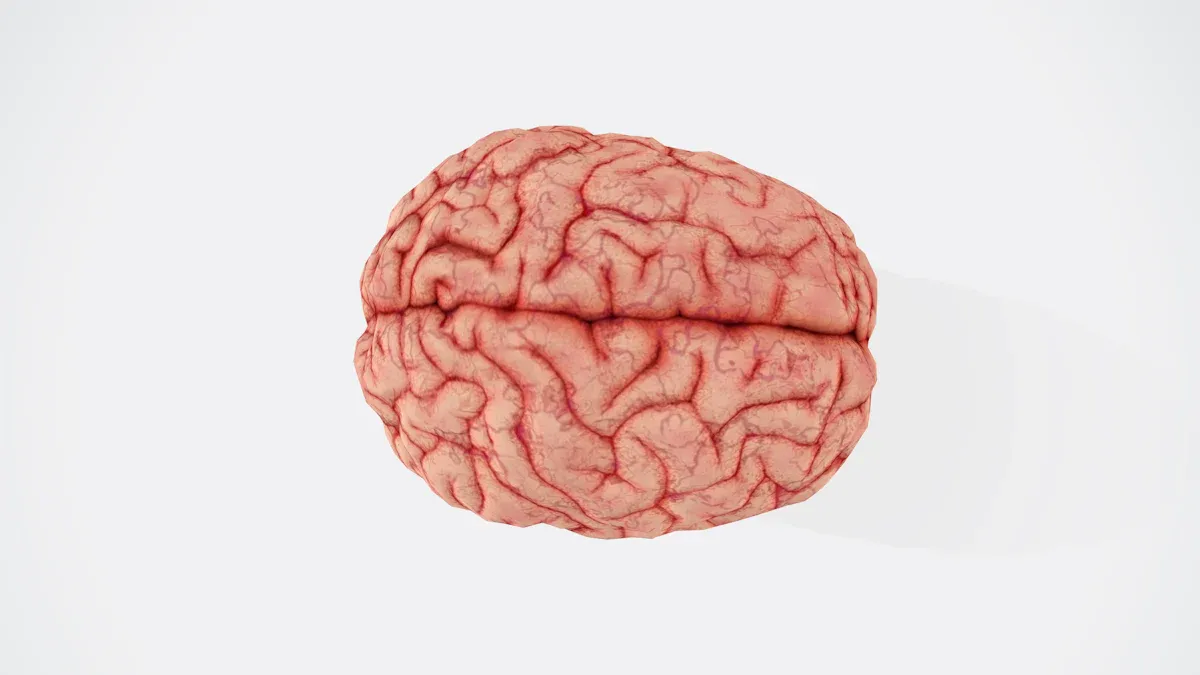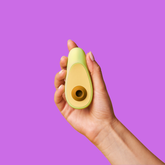Unravelling the Science Behind Sex Addiction Myths

Is sex addiction real, or is it just society not understanding how people act? Recent studies say that 3% to 6% of adults in the United States show signs of sex addiction, but numbers are different in other countries. Many people do not understand this condition.
Some people think it means someone is bad.
Others think it is just a choice or that people are not strong enough.
Shame and not talking about it make these wrong ideas worse.
Sex addiction: Science vs. misconception is still an important topic for research and open talk.
Key Takeaways
Sex addiction means you cannot control your sexual urges. This can cause trouble in your daily life. It is not just about wanting sex a lot. Both men and women can have sexual compulsivity. Shame and stereotypes often stop people from getting help. Science shows sex addiction links to changes in the brain. It also links to psychological factors. This makes it a real and complex condition. Stigma and shame make it harder to get support. Open talk and learning can help break these barriers. Good treatment uses therapy and support groups. It also uses care that fits each person. This care helps with mental health and social needs.
Sex Addiction: Science vs. Misconception

Defining the Condition
Sex addiction: science vs. misconception often starts with people being confused about what it really is. Many people think sex addiction means someone just cannot control themselves or that they are doing something wrong. But science shows it is more complicated than that. Doctors use words like hypersexuality or compulsive sexual behaviour disorder. These words describe when someone has strong sexual thoughts, urges, and actions they cannot stop, even if it causes problems.
Note: Top medical groups have not officially called sex addiction a separate disorder in the DSM-5. This means the American Psychiatric Association has not given it an official meaning. Still, doctors and researchers talk about it and study it.
Some main signs of hypersexuality are:
Strong sexual thoughts that are hard to stop.
Spending too much time on sexual things or looking at sexual content.
Not being able to stop sexual actions even when they cause trouble.
Problems with friends, family, work, or feeling sad.
It can happen with other mental health problems like depression, anxiety, or bipolar disorder.
Doctors find it hard to diagnose sex addiction. There are no set rules, so they must use their own judgement. They look at how much someone thinks about sex and how it affects their life. Hypersexual behaviours can look like other disorders, so it is hard to tell if it is sex addiction alone. Feeling ashamed or guilty can stop people from asking for help or talking about their problems.
Prevalence and Impact
Sex addiction: science vs. misconception also means learning how common it is and what it does to people and society. New studies give us numbers, but these numbers change depending on who is being studied and what rules are used.
Study / Analysis Type |
Population / Scope |
Prevalence (%) |
Notes |
|---|---|---|---|
2018 JAMA Psychiatry study |
U.S. general population |
Hypersexuality overall prevalence |
|
Women |
7.0 |
Clinically significant distress or impairment |
|
Men |
10.3 |
Clinically significant distress or impairment |
|
International meta-analysis on pornography |
Global / international |
16.6 |
Problematic pornography use related to CSBD |
Sex addiction: science vs. misconception shows that how many people have it can be from 3% to over 8% in some groups. Problematic pornography use can be even higher in the world. These numbers show we need more research and better ways to diagnose it.
Sex addiction affects more than just numbers. People with this problem often feel very sad, worried, have low self-worth, and feel a lot of shame. Many feel they hate themselves, feel hopeless, or even think about hurting themselves. Sex addiction: science vs. misconception also shows that relationships can get much worse. Partners may feel hurt or not trust each other, and talking becomes hard. People may stop being close, cheat, or forget their duties. Being alone, doing badly at work or school, and getting into trouble with the law or money are also common.
Tip: Shame and stigma about sex addiction make it harder for people to get help, which can make mental health and relationship problems worse.
Sex addiction: science vs. misconception is still argued about by scientists. Some say it is like other addictions, but others think we need more research to call it a separate disorder. Not having clear rules and it looking like other mental health problems makes it more confusing. But the facts and what doctors see show that sex addiction can really hurt people and those around them.
Common Myths
Moral Failing vs. Medical Issue
Many people think sex addiction is just a moral problem. They believe people with sexual compulsivity do not have enough willpower or good values. But science tells us something else. Medical experts call compulsive sexual behaviour an impulse control disorder in the ICD-11. It is not called an addiction. The DSM-5 does not list sex addiction as a real diagnosis. Still, it says these behaviours are very complex. Public health experts do not say that pornography or sexual compulsivity is a public health crisis. These facts show sexual compulsivity is more than just about morals.
Studies show that negative views about sexual behaviour often come from religion or culture. These views can make people feel very guilty or ashamed. People feel upset when their actions do not match their values. This upset feeling comes from the clash between what they do and what they believe. It is not just the behaviour that causes pain. Science shows sexual compulsivity is a complicated issue. It is not just about being right or wrong.
Gender Stereotypes
Some people think only men have sexual compulsivity. This is not true. New studies show both men and women can have this problem. Both can also use pornography in a compulsive way. Women may feel even more shame because of what society expects. Gender stereotypes can stop people from getting help or telling the truth. Research says we need to think about gender when we try to help people with sexual compulsivity.
High Libido vs. Addiction
Some people think having a high sex drive means someone has a disorder. This is not correct. A high libido is not the same as sexual compulsivity. People with sexual compulsivity cannot control their urges, even when it hurts them. They may feel anxious or grumpy when they try to stop. This is like withdrawal. The main difference is losing control and having problems in daily life. Not everyone who likes sex a lot has a disorder.
Remember: Sexual compulsivity is about losing control, not just wanting sex a lot.
Latest Research
Neurobiological Evidence
New research has found important things about the brain and sexual compulsivity. Some brain areas help control reward, feelings, and impulses. These include the prefrontal cortex and anterior cingulate cortex. Changes in these areas are linked to this disorder. Dopamine is a brain chemical. It is released in places like the nucleus accumbens and ventral tegmental area. This chemical makes people feel good and want to repeat actions. It can make sexual behaviour hard to control. Genes also play a part in the risk of sexual compulsivity. These findings show the disorder is not just about the mind. It is also about the body.
Neuroimaging studies show the brain’s reward system reacts to sexual compulsivity like it does to other addictions. Some studies found problems with white matter in people with hypersexual disorder. This means there are changes in the brain’s structure. Scientists agree these results show sexual compulsivity is like other behavioural addictions. But it is still a unique disorder.
Psychological Factors
Psychological factors are also very important in sexual compulsivity. Many people with this disorder had trauma as children. This could be abuse, neglect, or family issues. These early problems can cause shame and make trust hard. Research says people with trauma often feel sad, worried, and act out sexually. Attachment theory says children need steady emotional support. Without it, they may have trouble trusting and controlling feelings. This can lead to sexual compulsivity later on. Mental health problems like depression and anxiety often happen with this disorder. This makes it even harder to handle.
Co-occurring Conditions
Sexual compulsivity almost never happens by itself. Many people with this disorder have other mental health problems too. Depression, anxiety, and substance use disorders often come with sexual compulsivity. These extra problems make treatment harder. Scientists are still studying how these disorders affect each other. Knowing these links helps doctors make better treatment plans. It also helps them support people more.
Diagnosis and Debate
Diagnostic Criteria
Doctors find it hard to diagnose sexual behaviour problems. The DSM-5 does not call sex addiction a separate disorder. Experts often use the term compulsive sexual behaviour disorder. The World Health Organization lists this in the ICD-11. This disorder means someone repeats sexual acts they cannot stop, even if it hurts them. Some doctors say hypersexual disorder, but not everyone agrees. There are no clear rules, so diagnosis is tough. Many symptoms look like other mental health problems, like depression or anxiety. This can make things confusing for both patients and doctors.
Screening Tools
Doctors use different tools to spot people who may need help. These tools do not give a final answer but show if someone might have a problem. Some common tools are:
The Sexual Addiction Screening Test (SAST), which is a self-report quiz about sexual addiction and compulsivity.
The Compulsive Sexual Behavior Assessment Tool (CSAT), another quiz used by doctors.
Interviews and checks for other problems, like trauma or anxiety.
These tools help doctors know if someone needs more support. They also help guide what to do next. Doctors often use these tools with interviews to understand the whole situation.
Professional Disagreement
Experts do not always agree about sex addiction. Some think it is an impulse control disorder. Others say it is its own condition. The debate goes on because the DSM-5 does not list it as a real disorder. Some experts worry that calling sexual behaviour a disorder could make normal actions seem bad. Others say people who are really upset need help. This disagreement changes how people get care and how society sees the problem.
Social and Cultural Factors
Media Influence
Media has a big effect on how people see sexual compulsivity. News, films, and social media often show only the most extreme cases. They use exciting words to get attention. This makes many people think sexual compulsivity is rare or only happens to certain people. Media sometimes talks about porn use and sex addiction together but does not explain the science. Because of this, people do not understand the real risks or signs. When the media focuses on scandals, it can make people feel more shame. This makes it harder for people to talk about their problems. Honest news and open talks help stop myths and support those who need help.
Stigma and Shame
Stigma surrounds sexual compulsivity and causes many problems. Society often thinks people with sexual compulsivity have no self-control or bad morals. This negative view leads to people being left out and treated badly. People feel guilty and ashamed, so they do not ask for help. Many are scared doctors will judge them, so they keep quiet. Stigma also happens in hospitals, where some staff treat patients unfairly. These actions make people trust doctors less and make treatment harder. Stigma and shame keep people from speaking up, which makes getting better much harder.
Technology and Youth
Technology has changed how young people learn about sex. It is easy to find pornography online now. This has made compulsive sexual behaviour more common in young people. Some studies show that watching a lot of pornography can change the brain like other addictions. Young people who watch a lot may not enjoy normal things as much and act without thinking. The internet lets people hide and get what they want quickly. This can make compulsivity worse and easier to hide.
Brain research shows internet pornography users have changes linked to addiction.
MRI scans show stronger brain reactions to sexual images in those with compulsive sexual behaviour.
Watching pornography for a long time can make people less interested in normal rewards.
The internet makes people act without thinking and keep secrets, especially boys.
Watching more pornography, especially violent or mean content, links to more sexual aggression and bad attitudes. These habits can make sexual compulsivity worse and make good relationships harder. Knowing the risks of technology and pornography helps parents, teachers, and doctors support young people better.
Treatment and Recovery

Evidence-Based Approaches
Good treatment for sex addiction uses therapy and medical help. Cognitive-behavioural therapy helps people notice their thoughts and change bad habits. Other therapies, like dialectical behavioural therapy and motivational enhancement therapy, are also helpful. These methods teach people how to handle cravings and stay away from triggers. Some people get help in hospitals, while others visit clinics. Each plan is made for what the person needs. A full plan helps both the mind and body, so getting better is more likely. Therapy helps people build good habits and control their feelings.
Support and Relapse Prevention
Support groups give people a safe place to talk and learn from others. Peer support programmes, run by trained coaches, help people stay on track and keep things private. Family can help too, using ways like Community Reinforcement and Family Training. People getting better need safe homes and enough money. To stop relapse, people learn to spot triggers and handle cravings. Therapy teaches that relapse is a process, not just one mistake, so people can plan for tough times. Support groups and therapy together help people stay well for longer.
Support System Type |
Description and Impact |
|---|---|
Peer Recovery Supports |
Peer programmes help people get better and have good results. |
Culturally Responsive Care |
Respecting culture helps people recover, especially in care centres. |
Family and Spiritual Support |
Family and spiritual help make it easier for young adults to recover. |
Having a safe home and enough money helps people keep getting better. |
Reducing Stigma
Stigma makes it hard for people to get help. Community projects, like short animated videos, can help people feel less negative about sex addiction. These digital tools make people feel more hopeful and ready to ask for help. Talking openly and having community events also help people feel less ashamed. Support groups and therapy help people accept themselves and others. Less stigma means people do better and feel more supported as they recover.
Recent big studies show that trauma, gender, and family can affect compulsive sexual behaviour.
Main Focus |
Authors |
Publication Date |
|
|---|---|---|---|
Child Sexual Abuse and Compulsive Sexual Behaviour |
Trauma links, moderators |
Slavin et al. |
2025 |
Compulsive Sexual Behaviour in Women |
Gender focus |
Kowalewska et al. |
2025 |
Moral Incongruence Review |
Moral conflict |
Grubbs et al. |
2025 |
Family Factors in Pornography Use |
Family influence |
Villena Moya et al. |
2025 |
Pornography and Infidelity |
Relationship impact |
Mestre-Bach et al. |
2025 |
To really understand, people need to think carefully and keep learning.
People who want help can try these things:
Try to avoid triggers and use internet blockers.
See a therapist who can make a plan just for you.
Experts say it is good to talk openly, use care that understands trauma, and give easy-to-find help. This can lower shame and help people get better.
FAQ
What is the difference between sex addiction and a high sex drive?
A high sex drive means someone likes sex a lot. Sex addiction is when someone cannot stop sexual urges, even if it causes problems. The main difference is losing control and having trouble in daily life.
Can women experience sex addiction?
Yes, women can have sex addiction too. Studies show both men and women can have compulsive sexual behaviour. Women often feel more shame because of what society expects.
Is sex addiction officially recognised as a mental disorder?
The World Health Organization lists compulsive sexual behaviour disorder in the ICD-11. The DSM-5 does not call sex addiction a separate disorder. Experts still argue about how to classify it.
What treatments help with sex addiction?
Therapies like cognitive-behavioural therapy and support groups help many people. Some people may need medicine for other mental health problems. The best help is a plan made for each person.
Does watching pornography always mean someone has sex addiction?
No, watching pornography does not always mean someone has sex addiction. Most people use it without any trouble. Sex addiction means losing control and feeling upset, not just watching sexual content.


